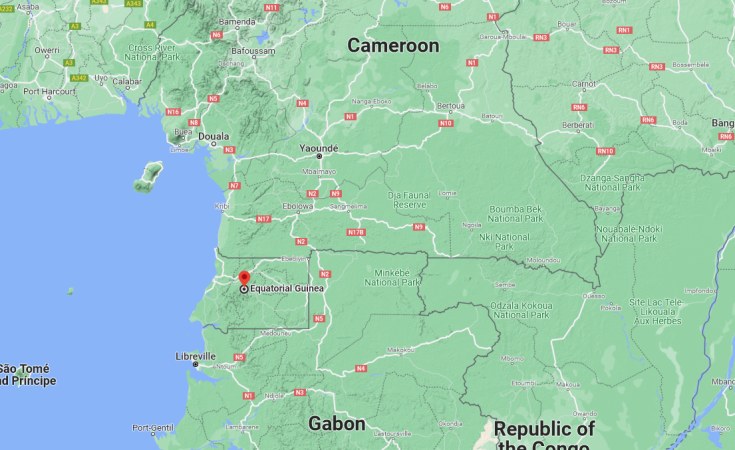Yaounde — Cameroon's health ministry has dismissed a report of two suspected cases of Marburg virus in the country after a first deadly outbreak in neighboring Equatorial Guinea. Health officials along the border said Tuesday there were two suspected cases of the severe hemorrhagic fever in Cameroon after Malabo confirmed nine deaths and sixteen possible infections. Despite dismissing the reported cases, Cameroon's health ministry says it is increasing surveillance and travel restrictions along the border.
Health Minister Manaouda Malachie says Cameroon does not yet have any suspected cases of the Marburg virus, despite reports of two possible infections.
Health officials in Cameroon's South region on Tuesday said a teenage boy and girl suffering from high fever were rushed to a hospital Monday in Olamze, on the border with Equatorial Guinea.
The health officials said the children were suspected of being infected with the Marburg virus, are in isolation, and are responding to treatment.
But Malachie seemed to contradict those reports when he spoke Wednesday to state broadcaster Cameroon Radio Television.
Malachie says the decision by Cameroon to stop Marburg virus, an illness like Ebola, by restricting movement along the border with Equatorial Guinea is so far yielding fruit. He says as of Wednesday at midday central African time, Cameroon had not reported any deaths or suspected cases of Marburg virus.
Malachie says civilians should avoid contact with animals and people who have travelled to Equatorial Guinea and make sure people with fever, fatigue, and blood-stained vomit and diarrhea are isolated.
But Malachie warned its porous border with Equatorial Guinea, which confirmed Monday its first outbreak of the deadly virus, puts it at risk.
Cameroon last week said it restricted movement along the border after Equatorial Guinea quarantined hundreds of people in Kie-Ntem Province, where the hemorrhagic fever was first reported.
The World Health Organization says Equatorial Guinea sent samples to the Pasteur Institute in Senegal, after an alert by a health official on February 7, and one of them tested positive.
The WHO says Marburg was transmitted to people from fruit bats, spreads between people via bodily fluids, and has a fatality rate of up to 88%.
Marburg is in the same family as the Ebola virus but, unlike Ebola, there are no vaccines for Marburg -- just treatments for the symptoms such as dehydration and fever.
Health officials from Cameroon and Gabon, which also shares borders with Equatorial Guinea, met Tuesday in Yaoundé and agreed to work together to prevent the virus from spreading.
University of Yaoundé sociology lecturer Francois Bingono Bingono was in the meeting.
He says the frequent movement of people across the borders will make stopping the virus a challenge.
Bingono says in 2020 Cameroon and Equatorial Guinea restricted movement along their border to protect their populations from COVID-19, but civilians on both sides did not respect the order. He says people living on both sides of the Cameroon-Equatorial Guinea border belong to the same ethnic groups, speak the same language, and celebrate happy events or mourn sad events together.
Bingono says health workers not known in border communities are struggling to educate locals that a deadly virus threatens their lives.
He says they will need traditional rulers to help convince their people.
The U.S. Centers for Disease Control and Prevention says the virus was first identified in 1967 in simultaneous outbreaks in laboratories in Marburg and Frankfurt, Germany, and in Belgrade.
Marburg is not new to Africa but is relatively new to West Africa.
An outbreak in Ghana in September last year killed two people, while Guinea recorded one death from the virus in 2021 -- the first known case in West Africa.
The WHO reported previous outbreaks in Angola, the Democratic Republic of Congo, Kenya, South Africa, and Uganda.


